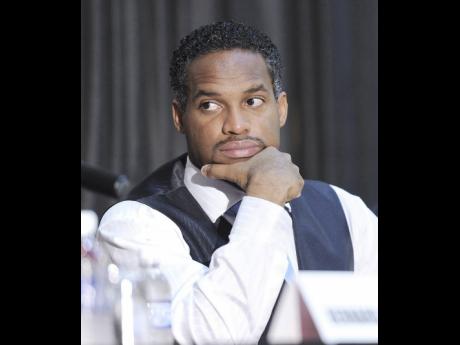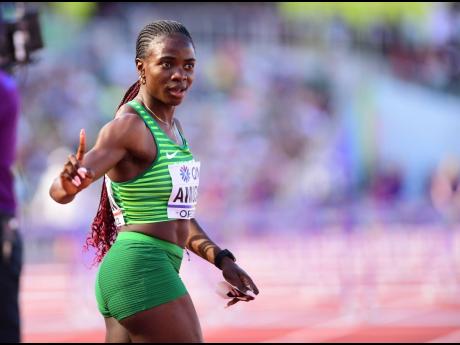Boldon’s world record prediction hits mark but picks wrong athlete
Trinidadian track and field analyst Ato Boldon is delighted that Tobi Amusan of Nigeria turned his world record prediction halfway on its head last Sunday in Eugene, Oregon at the World Athletics Championships. Amusan blasted the 100-metre hurdles...
Trinidadian track and field analyst Ato Boldon is delighted that Tobi Amusan of Nigeria turned his world record prediction halfway on its head last Sunday in Eugene, Oregon at the World Athletics Championships. Amusan blasted the 100-metre hurdles record held by American Kendra Harrison down from 12.20 seconds to 12.12 and came back to win the final with a wind-aided time of 12.06 seconds.
Boldon had predicted that Puerto Rico’s Olympic Games 100m hurdles champion Jasmin Camacho-Quinn would be the record breaker.
“I thought the record would go this year but I thought the way Jasmin had come off of last year and getting close to it in the Olympic semi-final, that’s when I thought it was going to go. So I was a little surprised to see that it was Amusan, because her best time in her life is 12.4,” he said from his Miramar, Florida training base.
“Then I went back and looked at how much she has refined her technique. That’s not the same Amusan, you know. If you look at Amusan last year in the Olympics and look at her now, she looks fitter, she looks stronger and her technique ... ,” he said, trailing off as his admiration for the 2018 Commonwealth champion grew.
Then he compared Amusan to France’s 1976 Olympic 110 metres hurdles champion Guy Drut. “She’s touching down like Guy Drut and I went like, ‘Jesus Christ, who taught her this?’ and I thought, that’s right, Lacena (Golding-Clarke) taught her this.”
Boldon swept aside criticism by fellow analyst Michael Johnson who called the times in Amusan’s semi-final into question. “I was really disappointed to see what Michael Johnson’s knee-jerk reaction was,” Boldon continued, “because he said the time rounded up and I didn’t know what stadium he was in. I didn’t see no time rounded up. The time flashed exactly what it was. And this thing where he said Cindy Sember thought she wasn’t going that fast, but Michael is a veteran, he should know better. Most personal record efforts feel the easiest.”
Sember clocked a British record of 12.50 seconds in that semi-final.
“Anyhow, I was delighted for her, very excited for Lacena, and I actually forgot that I had said that the world record in that event was going to go, because, in my mind, I did not see her breaking it. I felt it was going to go but not by her.”
The Trinidadian reckons that Amusan was driven to make up for recent big meet disappointments.
“When you’ve been fourth in the last two championships, and you don’t have a medal other than Commonwealth Games in your career, you have all the incentive in the world. So, the more I looked at it and studied it, her story, and kind of refreshed myself on her story, the more it makes sense to me,” the four-time Olympic medallist reasoned.


